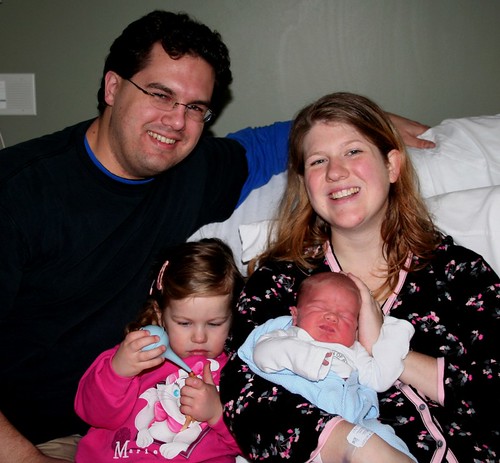
When I was a kid, my parents had this habit of taking me and my sister to a dentist every six months or so. I always wondered if he intentionally tried to fit most of his little tools into my mouth at the time just to see if he could, but by the end of the appointment he’d be satisfied that my teeth were in satisfactory health and give me a new toothbrush and a stern warning to floss better. And if it had been a really good appointment, I’d be told to walk out the door into the lobby and press a doorbell button that lit up a big sign that said “hey hey hey, no decay.” This was a really big deal to the dentists and hygienists that I would be able to press this button.
Why?
I mean, nobody expected me to get more teeth, only to keep them healthy. Our basic assumptions tend to be limited to maintenance, not expansion; we don’t expect growth, we expect things to stay just the way they are now. Obviously our experience tells us that a single person can’t actually have more teeth, but aside from that, we think it’s a silly question because we don’t like decay. We don’t like teeth that can rot and cause pain and make us eat only yogurt and applesauce. We don’t like that things break down, that they wear out, that it takes energy and effort to maintain them at their present state. In the science of thermodynamics we call this “dynamic equilibrium,” the way that it takes energy and effort and work to just keep things the way that they are instead of decaying – we call it “entropy.”

It takes an extraordinary amount of effort to keep things at dynamic equilibrium. Your body’s mitochondria, the little powerhouses of your cells, are feverishly working day and night to produce chemical energy, something called ATP, from your food. Furthermore, maintenance requires more than just energy, it also requires your cells to die on a regular basis as they wear out, and are replaced by new versions with new mitochondria and take up the call to keep being a body. When a person’s body decides to stop fighting the entropy, something called static equilibrium begins to take hold. Without all that effort, the body re-equilibrates with the environment around it and the elements begin doing their own thing. Another word for static equilibrium is “death.” When your body stops fighting the decay, it dies.
All this effort to keep one thing going.
But let’s say that my assumptions were different, that I still wanted the world to have more teeth. What would it take? Despite the limitations of my own mouth, there is a way – I could always get together with a girl (she’d have to be a cute girl if I wanted good teeth) and then make a few tiny people that could then grow their own teeth. Speaking from experience – I’ve done it twice now – I can say that it works. There are now more teeth in the world than before.
You can sleep easier tonight.
In order for growth to happen, it requires one to transcend dynamic equilibrium. Massive changes have to take effect in order to reproduce; new hormones are created, entirely new structures are built to house this new creature until it can sustain itself, great amounts of energy are spent in the making. And when at long last the day comes, there is pain and discomfort and separation. We literally cut the two apart sometimes when the growth hasn’t gone exactly according to plan. But in the end, there’s this beautiful new infant, fragile and vulnerable. And the process is still not finished; more energy is poured in, more effort is made to make muscles and bones and organs bigger, brain cells grow and fit into new patterns, and eventually, there is no longer an infant, but a fully capable, mobile adult that can make decisions, laugh, cry, and eat sushi.
God asks us to grow.

See, growth doesn’t happen when we simply try to maintain what we have. Sure, it takes a measured amount of energy to fight decay. But in reality, the amount of energy it takes to fight against decay is best spent growing bigger, in reproducing. In the end, it is in reproducing that we are able to live as a species. But when we reproduce, we cannot make the other into clones of ourselves, we must allow them to be unique, capable on their own, with their own set of gifts and talents. We don’t dictate who they are, God works with them so they can be the best they can be.
If nature is any sort of reflection of God’s intentions – and the scriptures and our tradition resonate that it is – then we are to move beyond simply maintaining ourselves. Life is not, in the end, about us, but about something bigger, more than ourselves. God’s assumptions are not our assumptions. And so our church programs have to give up on being static, because if we try to maintain them just-so in a changing world, we’re simply prolonging the inevitable move to equilibrium. When it’s about keeping it just like it always was, we’re really saying it’s all about us. But if we grow, if we reproduce and allow the children to grow up and think for themselves, we’ve begun to act out something bigger, something grander. We act in the very character of God.







